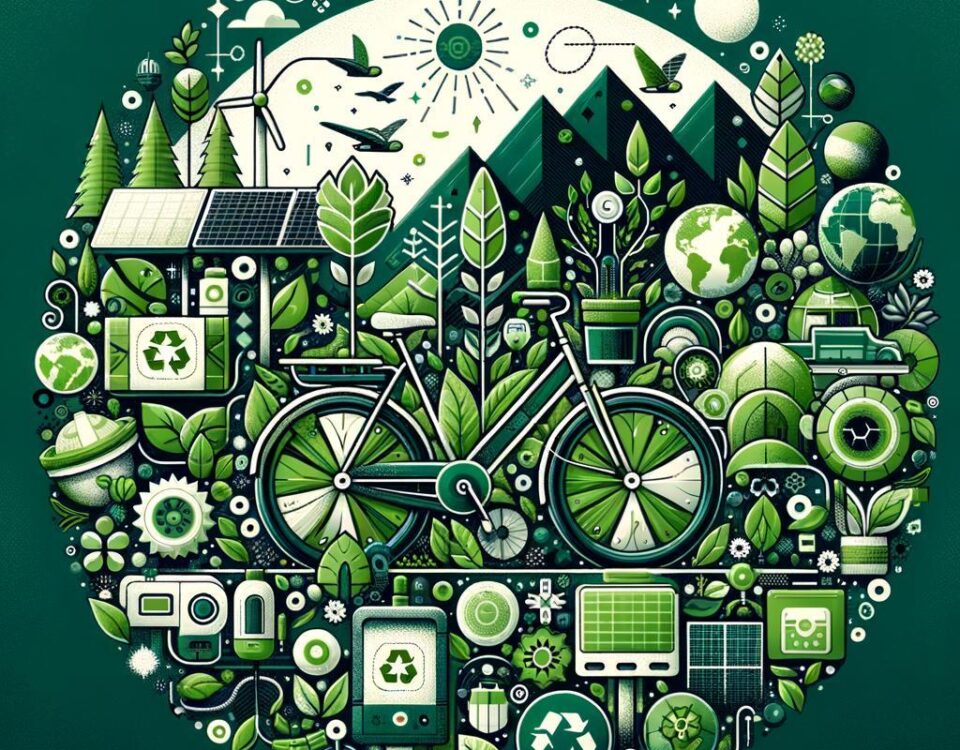The Role of Recycling in an Eco-Friendly Lifestyle
In recent years, the conversation surrounding environmental sustainability has increasingly emphasized the importance of adopting an eco-friendly lifestyle. One of the cornerstones of this movement is recycling. This article delves into the vital role of recycling in promoting a sustainable environment, its numerous benefits, practical tips for incorporating recycling into daily life, and real-world examples of its positive impact.
Understanding Recycling
Recycling is the process of converting waste materials into new products, aiming to prevent waste, reduce the consumption of fresh raw materials, lower energy usage, and minimize air and water pollution. The recycling process involves several stages:
- Collection: Gathering recyclable materials from homes, businesses, and public spaces.
- Sorting: Separating different types of materials for processing.
- Processing: Turning recyclables into raw materials for new products.
- Manufacturing: Using recycled materials to create new items.
- Purchasing: Encouraging consumers to buy products made from recycled materials.
Benefits of Recycling
Incorporating recycling into an eco-friendly lifestyle reduces environmental impact in various ways:
1. Conservation of Resources
Recycling conserves natural resources by reusing materials instead of extracting new ones. This process helps save forests, water, and minerals.
2. Energy Savings
Producing new items from recycled materials generally uses less energy compared to creating them from raw materials. For instance, recycling aluminum can save up to 95% of the energy required to produce it from bauxite ore.
3. Reduction of Waste
Recycling decreases the volume of waste sent to landfills. Less waste means reduced landfill expansion and lower methane emissions, which is a significant contributor to climate change.
4. Economic Growth
The recycling industry creates jobs and supports the economy. According to the National Recycling Coalition, recycling and reuse activities in the United States accounted for over 1.17 million jobs, generating $236 billion in revenue.
5. Pollution Reduction
Less waste in landfills leads to reduced production of greenhouse gases and lower pollution levels in air and water, promoting public health and environmental quality.
Practical Tips for Recycling Effectively
To maximize the positive impact of recycling, consider the following practical tips:
- Know Your Local Recycling Rules: Familiarize yourself with what materials are accepted in your local recycling program. Different regions may have varying guidelines.
- Accurate Sorting: Ensure that you sort your recyclables correctly. Contaminated or improperly sorted items can lead to entire loads of materials being thrown away.
- Reduce and Reuse: Before recycling, think about reducing waste through minimalism and reusing items in creative ways.
- Educate Others: Share your recycling knowledge with friends and family to promote a community-wide recycling culture.
- Support Green Initiatives: Engage in local clean-up activities and support businesses and products that emphasize recycling practices.
Case Studies of Successful Recycling Programs
Many cities around the globe have implemented effective recycling programs, significantly impacting their environments.
| City | Program Description | Recycling Rate |
|---|---|---|
| San Francisco | Mandatory recycling and composting laws | 80% |
| Capetown | Community-based recycling initiatives | 40% |
| Stockholm | Zero waste goals and extensive education | 50% |
Personal Experience with Recycling
As an individual who has adopted an eco-friendly lifestyle, my personal journey with recycling began with a simple step: setting up a dedicated recycling bin in my kitchen. Over time, I became more conscious of my consumption patterns and learned to repurpose items creatively. For instance, I transformed glass jars into storage containers and old t-shirts into reusable shopping bags. This not only reduced waste but fostered a sense of creativity and purpose, reinforcing my commitment to an eco-friendly lifestyle.
Conclusion
Recycling plays an indispensable role in fostering an eco-friendly lifestyle. By conserving resources, saving energy, reducing waste, promoting economic growth, and decreasing pollution, recycling paves the way for a healthier planet. As individuals, we can significantly contribute to this cause by incorporating practical recycling habits into our daily lives and educating others about its importance. Adopting an eco-friendly lifestyle doesn’t happen overnight, but with small, consistent efforts, we can make a profound impact on our environment for future generations.






